The Impact of AI on Consumer Audio Devices
22 December 2024
Artificial Intelligence (AI) is no longer just a thing of futuristic sci-fi movies or tech labs. It’s everywhere, sneaking into almost every corner of our lives, from our smartphones to our cars. But there’s one area where its impact has been quietly but steadily growing—consumer audio devices. If you’re a gadget enthusiast or even a casual user of headphones, speakers, or smart assistants, you’re already benefiting from the AI revolution. Crazy, right?
In this article, we're going to dive deep into how AI is transforming the world of consumer audio devices. We’ll explore the cool innovations, the pros and cons, and what the future might hold. So, plug in your headphones, crank up the volume, and let’s get into it!
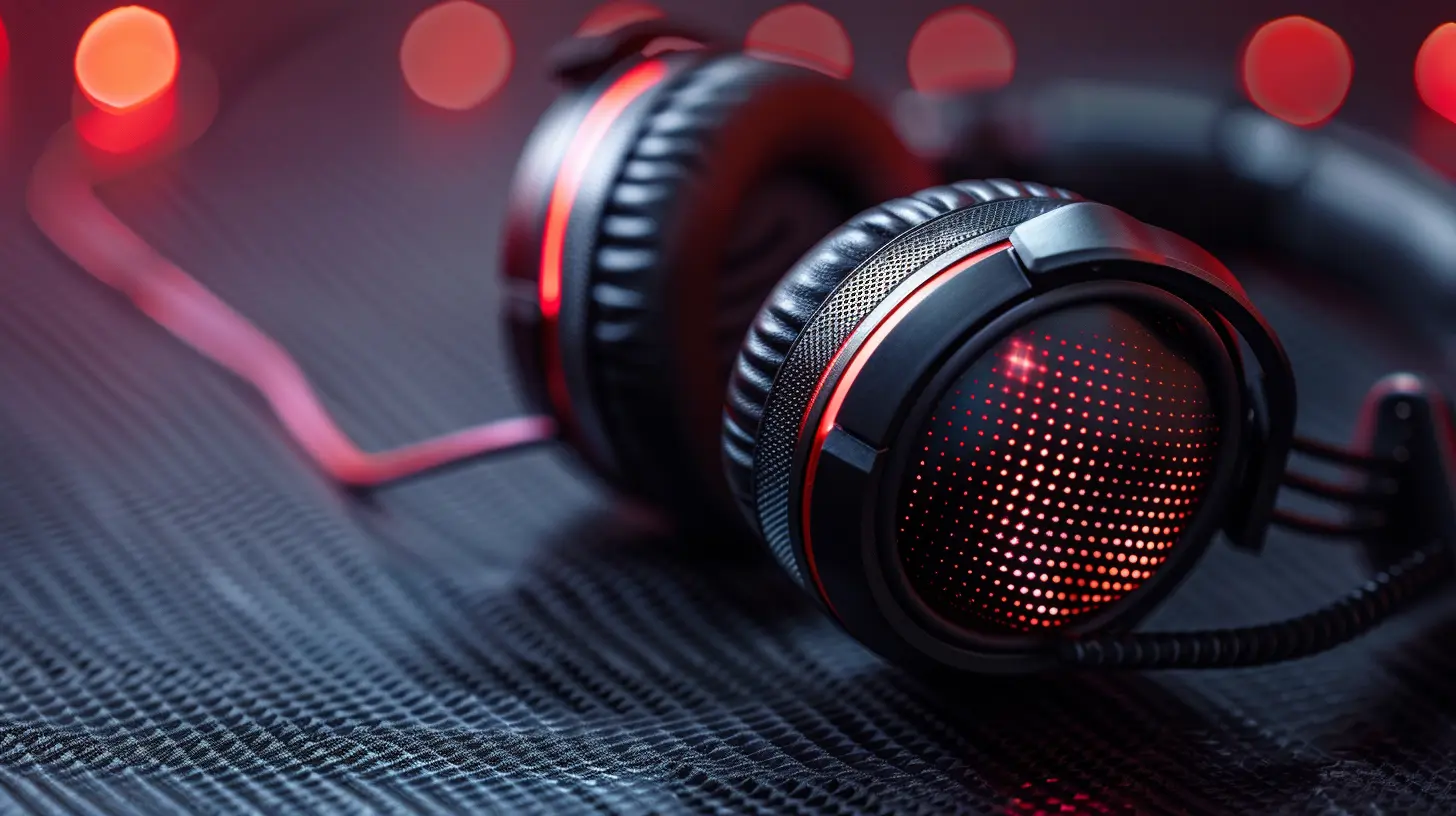
What Are Consumer Audio Devices?
Before we get all techy, let’s make sure we’re on the same page. Consumer audio devices are basically any gadgets you use to listen to sound—whether it’s music, podcasts, or even the sound of your own voice (hello, voice assistants!). This includes products like:- Headphones and earbuds
- Smart speakers
- Home audio systems
- Soundbars
- Bluetooth speakers
Now that we’ve got that sorted, let’s talk about what AI is doing to these devices.
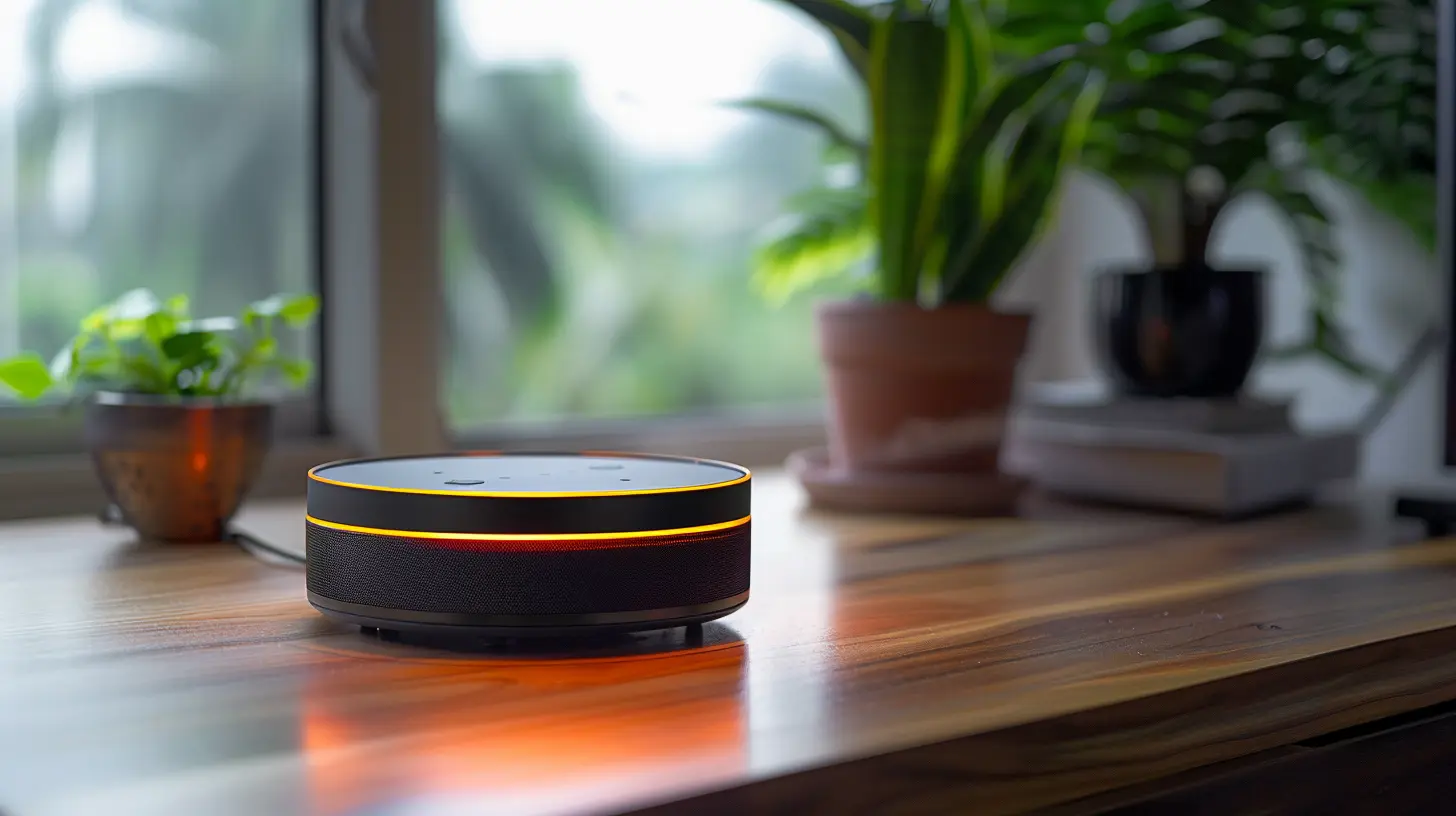
The Role of AI in Audio Processing
So, what does AI have to do with audio? A whole lot, actually. AI is changing the way these devices process sound—turning them from simple speakers and headphones into smart, adaptive gadgets that can make real-time decisions.Noise Cancellation Like Never Before
Remember when noise-canceling headphones were just about blocking out the engine noise on an airplane? Well, thanks to AI, noise cancellation has leveled up. AI-driven headphones can now differentiate between different types of noise. It’s not just about silencing the world; it’s about intelligently removing unwanted noise while keeping the sounds you want to hear.For example, AI can distinguish between background chatter in a café and a train's screeching brakes. Based on real-time data, it adapts the noise-canceling algorithm to give you a more customized listening experience. It’s like the headphone equivalent of having a personal sound engineer in your ear.
Voice Recognition and Assistance
Whether you’re asking Siri to play your favorite playlist or telling Alexa to set a timer, AI-powered voice assistants have become integral to consumer audio devices. These assistants are getting smarter every day, thanks to advances in machine learning and natural language processing.AI allows these devices to not only understand your words but also learn from your habits. If you’re constantly asking for relaxing music in the evening, over time, your smart speaker will proactively suggest similar tunes. It’s like your devices are getting to know you personally—creepy or convenient? You decide.
Adaptive Sound Tuning
Ever noticed how the sound in your favorite song can feel different depending on where you are or what mood you’re in? AI is stepping in to solve that problem with adaptive sound tuning. Some high-end audio devices now come with AI that adjusts the audio output based on your environment.For example, let’s say you’re listening to music in a noisy subway station. AI can detect the background noise and tweak the bass and treble so that your music still sounds crisp and clear. It’s like having a sound technician following you around, making sure everything sounds just right.
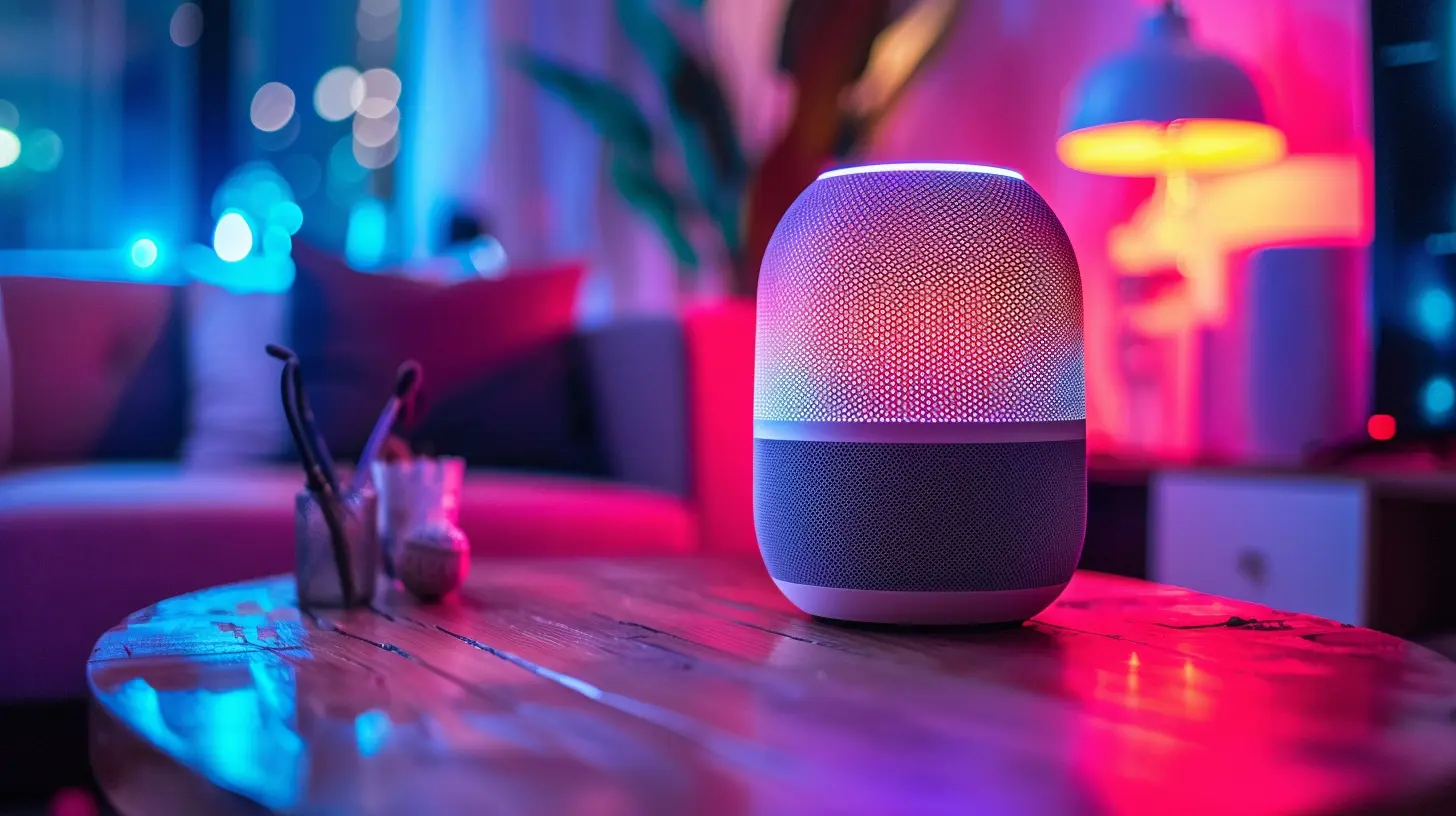
AI’s Influence on Audio Hardware Design
It’s not just the software side of things where AI is making waves. The hardware, too, is benefiting from AI’s magic touch. Manufacturers are leveraging AI to improve the efficiency, design, and even the durability of audio devices.Enhanced Battery Life
One of the pain points with wireless audio devices is battery life. Let’s face it, no one enjoys the dreaded "low battery" beep in the middle of a workout or commute. AI is stepping in to help optimize power consumption in more intelligent ways.For instance, AI algorithms can predict your usage patterns and adjust power consumption accordingly. If you’re listening to music at a lower volume or in a quieter environment, the device can reduce power to save battery. It’s all done in the background without you even realizing it—almost like your audio device has a sixth sense for energy efficiency.
Smart Wearable Audio Devices
AI is also pushing the boundaries of what we expect from wearable audio devices. Some earbuds and headphones now come equipped with sensors that use AI to track your health data, such as heart rate or posture. This could mean that your next pair of headphones might double as a fitness tracker, keeping tabs on your well-being while blasting your favorite tunes. Talk about multitasking!Personalized Recommendations
Ever wondered why your music app seems to know exactly what you want to listen to, even before you do? That’s AI at work. Using machine learning algorithms, these apps analyze your listening habits and recommend songs, albums, and podcasts that align with your preferences.It’s not just about music either. Some AI-driven audio devices are starting to offer personalized content recommendations too, like suggesting podcasts based on your morning news habits or audiobooks for your evening wind-down. It’s like having a personal DJ who knows exactly what you need, when you need it.
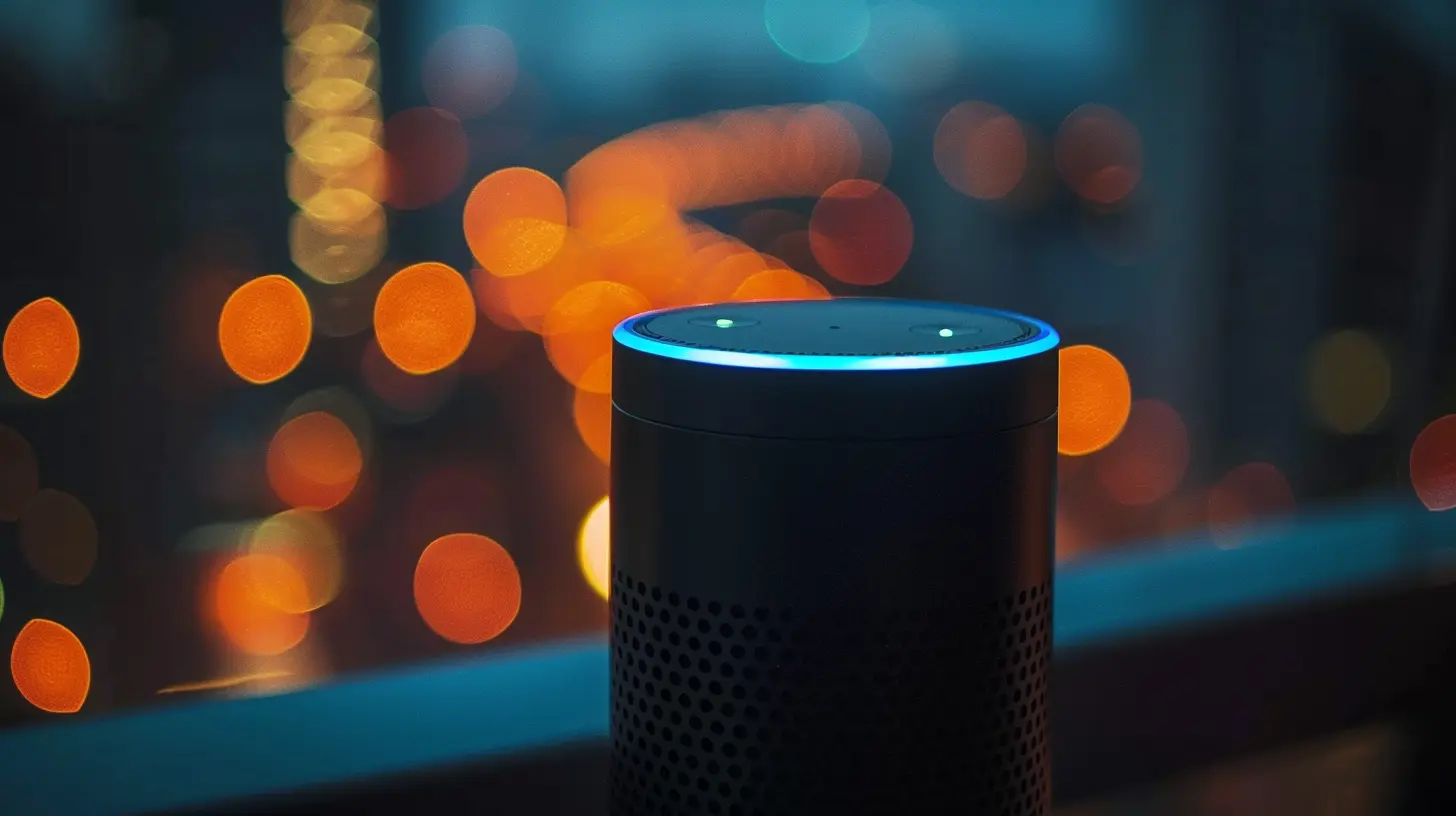
The Benefits of AI in Consumer Audio Devices
Alright, we’ve covered some of the cool things AI is doing in the world of audio, but what’s in it for you? Let’s break down the benefits that AI brings to the table.1. Improved Sound Quality
AI allows for real-time audio adjustments, meaning you get better sound quality no matter where you are or what you’re listening to. It’s like having a professional audio engineer tweaking your settings on the fly.2. More Convenience
Voice recognition and smart assistants make it easier than ever to control your devices. You don’t need to fiddle with buttons or touch screens—just say the word, and your device responds.3. Longer Battery Life
Thanks to AI’s power optimization features, your wireless headphones or speakers can last longer on a single charge, making them more reliable for daily use.4. Personalized Experiences
From curated playlists to adaptive sound environments, AI makes your audio experience more personal and tailored to your preferences. It’s almost as if your devices are learning what you like and adapting accordingly.5. Integration with Other Smart Devices
AI-powered audio devices can easily integrate with other smart gadgets in your home. Whether it’s syncing with your smart lights or adjusting the volume based on your TV's output, it's all about making life smoother and more connected.The Challenges of AI in Consumer Audio Devices
Of course, it’s not all sunshine and rainbows. With new technologies come new challenges, and AI in consumer audio devices is no exception.1. Privacy Concerns
One of the biggest concerns with AI-powered devices is privacy. Voice assistants are always listening for their wake word, which means they could potentially capture conversations you didn’t intend to record. There’s an ongoing debate about how much data these devices collect and how it’s used. If you’re someone who values privacy, this is something to keep in mind.2. Over-Reliance on AI
As fantastic as AI is, there's a risk of becoming too dependent on it. What happens if the AI makes a mistake? Or if it misinterprets your voice command? While AI is getting better, it’s not perfect, and relying too much on it could lead to frustration.3. Cost
AI-driven audio devices, especially high-end ones, tend to come with a higher price tag. That’s because you’re not just paying for the hardware—you’re paying for the AI software and the research and development that went into making it. If you’re on a tight budget, AI features might be more of a luxury than a necessity.
The Future of AI in Audio Devices
So, what’s next? AI is advancing at a breakneck speed, and it’s only going to get more integrated into our audio experiences. Here are some trends to keep an eye on:1. AI-Driven Soundscapes
Imagine walking into a room, and your smart speaker automatically adjusts the music, lighting, and even the temperature based on your mood and preferences. AI could soon create immersive soundscapes that adapt to your environment in real-time, enhancing not only the audio experience but your overall ambiance.2. Emotional AI
Some companies are already working on AI that can detect your emotional state based on your voice or facial expressions. In the future, your audio devices could play calming music when you’re stressed or upbeat tunes when you’re feeling down. It’s like having a personal therapist in your earbuds. Who knew a speaker could care about your feelings?3. AI for Hearing Assistance
AI is also making strides in the world of hearing aids and audio accessibility. Advanced algorithms will soon allow hearing aids to provide clearer sound in noisy environments, offering a better quality of life for people with hearing impairments.Conclusion
AI is not just a buzzword in the tech world. It’s genuinely reshaping the landscape of consumer audio devices in ways that are both exciting and practical. From improving sound quality to making our lives more convenient, the impact of AI is hard to ignore. Sure, there are challenges—like privacy concerns and costs—but the benefits make it clear that AI is here to stay in the audio world.As AI continues to evolve, we can expect even more innovative, personalized, and immersive audio experiences. So whether you’re a casual listener or an audiophile, the future of AI-powered audio devices is something to look forward to.
all images in this post were generated using AI tools
Category:
Tech TrendsAuthor:

Reese McQuillan
Discussion
rate this article
24 comments
Cypher McNab
AI revolutionizes consumer audio devices by enhancing sound quality, personalizing experiences, optimizing acoustics, and enabling voice-activated interactions for users.
February 12, 2025 at 7:57 PM

Reese McQuillan
Thank you for your insight! AI truly transforms audio devices, elevating sound quality and personalization while simplifying user interactions.
Shelby Mendez
Great insights! Excited to see how AI enhances our audio experiences and personalizes sound for everyone!
February 1, 2025 at 5:52 AM

Reese McQuillan
Thank you! I'm excited too—AI has incredible potential to transform our audio experiences.
Faelith McNair
AI redefines our auditory experiences, transforming personalization and accessibility while challenging our perceptions of creativity.
January 25, 2025 at 8:20 PM

Reese McQuillan
Thank you for your insightful comment! Indeed, AI is revolutionizing how we experience sound, enhancing personalization and accessibility, and reshaping our understanding of creativity in audio.
Liam Palmer
AI significantly enhances consumer audio devices, improving sound quality, personalization, and user experience, while enabling smart features that adapt to individual preferences.
January 21, 2025 at 1:52 PM

Reese McQuillan
Thank you for your insightful comment! AI indeed revolutionizes consumer audio by enhancing sound quality and personalizing user experiences.
Zinna Pruitt
In whispers of innovation, AI tunes the soul, transforming soundscapes where dreams and reality unfold.
January 17, 2025 at 1:53 PM

Reese McQuillan
Thank you for your poetic insight! AI indeed revolutionizes consumer audio, enhancing our listening experiences and bridging the gap between dreams and reality.
Harley Carey
Exciting times ahead for audio lovers—tune in!
January 13, 2025 at 8:38 PM

Reese McQuillan
Absolutely! AI is revolutionizing audio experiences, making them more personalized and immersive than ever. Exciting times indeed!
Audra Lane
Great insights on AI's influence on consumer audio! Excited to see future innovations unfold.
January 11, 2025 at 12:22 PM

Reese McQuillan
Thank you! I'm glad you found the insights valuable. Exciting times ahead for AI and audio!
Natalia McDougal
Just imagine a world where your headphones can predict your mood and play the perfect soundtrack for your life’s plot twists! AI in audio gear is like giving your ears a quirky little philosopher. Can we get a soundtrack for snack time too?
January 9, 2025 at 3:53 AM

Reese McQuillan
Absolutely! AI in audio devices is transforming our listening experience, making it not just about sound but also about enhancing our moods, even for snack time! It's a fascinating blend of technology and personal experience.
Zephyros Barlow
Thank you for this insightful article! It’s fascinating to see how AI continues to transform consumer audio devices, enhancing sound quality and user experience. Looking forward to future developments!
January 5, 2025 at 7:32 PM

Reese McQuillan
Thank you for your kind words! I'm glad you found it insightful. Exciting times are ahead for AI in audio!
Duke McKeehan
AI transforms audio devices: smarter sound, personalized experiences, and dynamic innovation!
January 2, 2025 at 4:24 AM

Reese McQuillan
Thank you! We're excited to explore how AI is revolutionizing audio technology and enhancing user experiences in our article.
Olivia Clayton
Thank you for this insightful piece! It's fascinating to see how AI is transforming consumer audio technology. The potential for enhanced personalization and improved sound quality is exciting. I look forward to witnessing how these advancements shape our listening experiences in the future!
December 30, 2024 at 12:35 PM

Reese McQuillan
Thank you for your kind words! I'm glad you found the piece insightful—exciting times ahead for consumer audio with AI!
Linnea Carrillo
Exciting advancements shaping audio experiences!
December 29, 2024 at 7:49 PM

Reese McQuillan
Thank you! AI is indeed transforming how we experience audio, enhancing personalization and sound quality like never before.
Genevieve Heath
Who knew AI would turn our speakers into mini DJ wizards? As they serenade us with personalized playlists and perfectly tuned sound, it feels like our earbuds are getting smarter and more stylish! Here’s to a future of fabulous tunes!" 🎶✨
December 29, 2024 at 3:36 AM

Reese McQuillan
Absolutely! AI is transforming our audio experience, making devices not just smarter but also more attuned to our musical tastes. Exciting times ahead for music lovers! 🎧
Kingston McKittrick
AI is revolutionizing consumer audio by enhancing personalization, optimizing sound quality, and enabling smarter device interactions. As AI continues to evolve, we can expect even more immersive and tailored audio experiences that redefine how we engage with sound.
December 28, 2024 at 7:36 PM

Reese McQuillan
Thank you for your insightful comment! I completely agree that AI is transforming consumer audio, making experiences more personalized and immersive. Exciting times ahead!
Taryn McDonough
This article highlights the transformative role of AI in enhancing consumer audio devices, offering improved personalization and sound quality. However, it’s essential to consider potential privacy concerns and the need for user control in a rapidly evolving tech landscape.
December 27, 2024 at 8:11 PM

Reese McQuillan
Thank you for your insightful comment! I agree that while AI significantly enhances audio devices, addressing privacy concerns and ensuring user control are crucial for responsible development.
Kristina Stewart
Exciting times for audio!
December 27, 2024 at 3:46 AM

Reese McQuillan
Absolutely! AI is transforming the way we experience sound, making it more personalized and immersive than ever before.
Wendy Lane
AI enhances consumer audio devices significantly, improving sound quality and personalization, but it raises concerns about privacy and data usage.
December 26, 2024 at 12:04 PM

Reese McQuillan
Thank you for your insightful comment! You're absolutely right—while AI greatly enhances audio quality and personalization, it's essential to address the privacy and data usage issues that arise. Balancing innovation with consumer protection is crucial.
Jemima McGivern
AI is revolutionizing consumer audio by enhancing personalization and sound quality, yet raises questions about privacy and dependency on technology.
December 26, 2024 at 5:57 AM

Reese McQuillan
Thank you for your insightful comment! While AI indeed enhances personalization and sound quality in consumer audio, we must navigate the challenges of privacy and technology dependence to ensure a balanced evolution in this space.
Sylph Gonzalez
AI is not just enhancing sound quality; it’s redefining how we interact with audio—personalizing experiences one beat at a time.
December 25, 2024 at 7:59 PM

Reese McQuillan
Absolutely! AI is transforming audio interaction, making it more tailored and immersive for each listener.
Primrose Hardy
In a symphony of circuits and sound, AI transforms our listening ground. Melodies crafted with precise intent, Each note a whisper, each beat, a blend. Consumer audio redefined, anew, Where tech and art converge, it’s true.
December 25, 2024 at 11:46 AM

Reese McQuillan
Thank you for your poetic reflection! It beautifully captures how AI is revolutionizing the audio experience, enhancing both creativity and innovation in consumer audio technology.
Runevale Carey
As AI technology continues to evolve, its integration into consumer audio devices is redefining user experience. Enhanced personalization, improved sound quality, and smart features are now standard. This shift not only elevates audio performance but also aligns with consumer demands for convenience and adaptability in an increasingly digital lifestyle.
December 25, 2024 at 3:20 AM

Reese McQuillan
Thank you for highlighting the transformative role of AI in audio devices. The advancements indeed reflect a significant shift towards enhanced personalization and convenience, shaping how we experience sound in our digital lives.
Norah Sweeney
AI is revolutionizing consumer audio devices by enhancing sound quality, personalizing listening experiences, and enabling smart features like voice control and adaptive sound adjustments. With continuous advancements, consumers can expect even smarter, more intuitive products that cater to diverse preferences and environments. Exciting times ahead!
December 24, 2024 at 9:59 PM

Reese McQuillan
Absolutely! AI is indeed transforming audio devices, making them smarter and more tailored to individual preferences. It's an exciting era for audio technology!
Monique Gomez
Exciting times ahead! AI is revolutionizing consumer audio devices, enhancing our listening experiences like never before. Can’t wait! 🎶✨
December 23, 2024 at 1:35 PM

Reese McQuillan
Absolutely! The integration of AI is transforming audio experiences, making them more personalized and immersive than ever. Exciting times indeed! 🎧
Lyanna Rios
This article offers valuable insights into the evolving role of AI in audio devices. I'm excited to see how these advancements will enhance our listening experiences.
December 22, 2024 at 4:13 AM

Reese McQuillan
Thank you! I'm glad you found the insights valuable. Exciting times lie ahead for audio technology!
MORE POSTS

How to Stay Safe from Spear Phishing Attacks

From Legacy Systems to the Cloud: Modernizing IT Infrastructure

How Tech is Driving the Future of Personalized Medicine

How AI is Transforming Data Security Practices

The Future of Work: Embracing Automation in the Workplace

How to Protect Your Business from Data Security Vulnerabilities

The Best Laptops for Stock Trading: Speed, Connectivity, and More

Embedded Finance: The Future of Seamless Financial Services

Blockchain and Artificial Intelligence: A Powerful Combination

How AI Is Transforming Data Center Management

Unlocking the Potential of 5G for IoT Devices

How to Create Stunning Titles and Text Effects in Video Editing

Exploring Laptops with OLED Displays: A Visual Feast or Just a Gimmick?
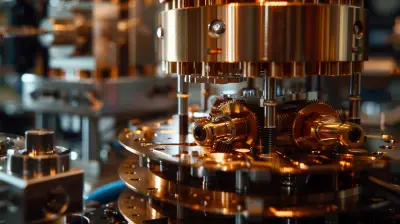
Quantum Computing for Environmental Modeling: Predicting the Unpredictable